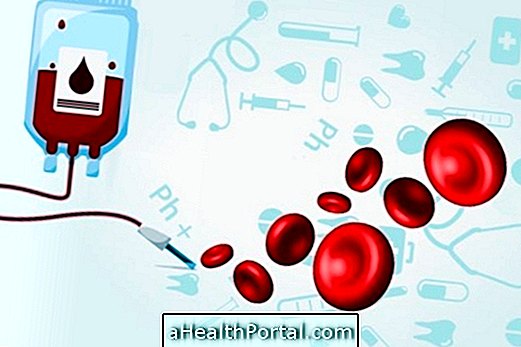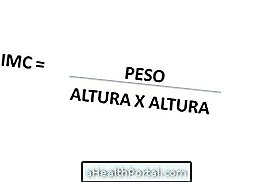Thalassemia is hereditary, has no cure and has several types. Its treatment is done according to the severity of the disease, but the main form of control when the anemia is very strong is the blood transfusion.
Thalassemia, also known as Mediterranean anemia, is a hereditary disease of the blood that causes anemia, as there is an abnormal production of hemoglobin, a substance that gives blood red color and is responsible for transporting oxygen to the cells. See the types of thalassemia.
See how treatment is done according to each type of disease.
Treatment of Thalassemia Minor
This is the mildest type of the disease and does not require specific treatment. In general, the patient does not experience symptoms, but should be aware of the worsening of anemia in cases such as surgery, serious diseases such as cancer, high stress situations or during pregnancy.
In general, the doctor may recommend the use of folic acid supplements, a vitamin that stimulates the production of blood cells and helps relieve anemia. See foods rich in folic acid.

Treatment of Intermediate Thalassemia
It is an intermediate form of the disease, and some patients may develop severe symptoms of anemia, and it is important to monitor hemoglobin and iron in the blood by doing blood tests annually.
In general, the treatment is done with blood transfusions only during childhood, if the child presents growth delays, or in situations where growth of the spleen and liver occurs, which can lead to complications such as diabetes and heart disease.
Treatment of Thalassemia Major
It is the most serious form of the disease and the patient must receive blood transfusions throughout life, every 2 to 4 weeks, depending on the level of anemia. The earlier treatment is started, the lower the complications of the disease to the patient in the future.
In addition, it is also necessary to take iron chelating drugs, which will bind to iron in the body and prevent its excess. These medicines can be given directly into the vein 5 to 7 times a week or through tablets.
Patients with thalassemia major end up having excess iron in the body due to blood transfusions and because the intestine absorbs more of this mineral from the food in an attempt to solve the anemia. However, excess iron can cause diabetes and problems in organs like heart and liver.
Complications
The complications of thalassemia arise only in the intermediate and severe forms of the disease, especially when it is not treated properly.
In the intermediate form of the diseases, the complications can be:
- Deformities in bones and teeth;
- Osteoporosis;
- Gall stones;
- Ulcers in the legs due to lack of oxygen at the extremities of the body;
- Kidney problems;
- Increased risk of thrombosis;
- Heart problems.
- In severe cases, complications such as deformities in bones and teeth, enlargement of the liver and spleen, and heart failure can arise.
Here's how feeding can help treat thalassemia.


























